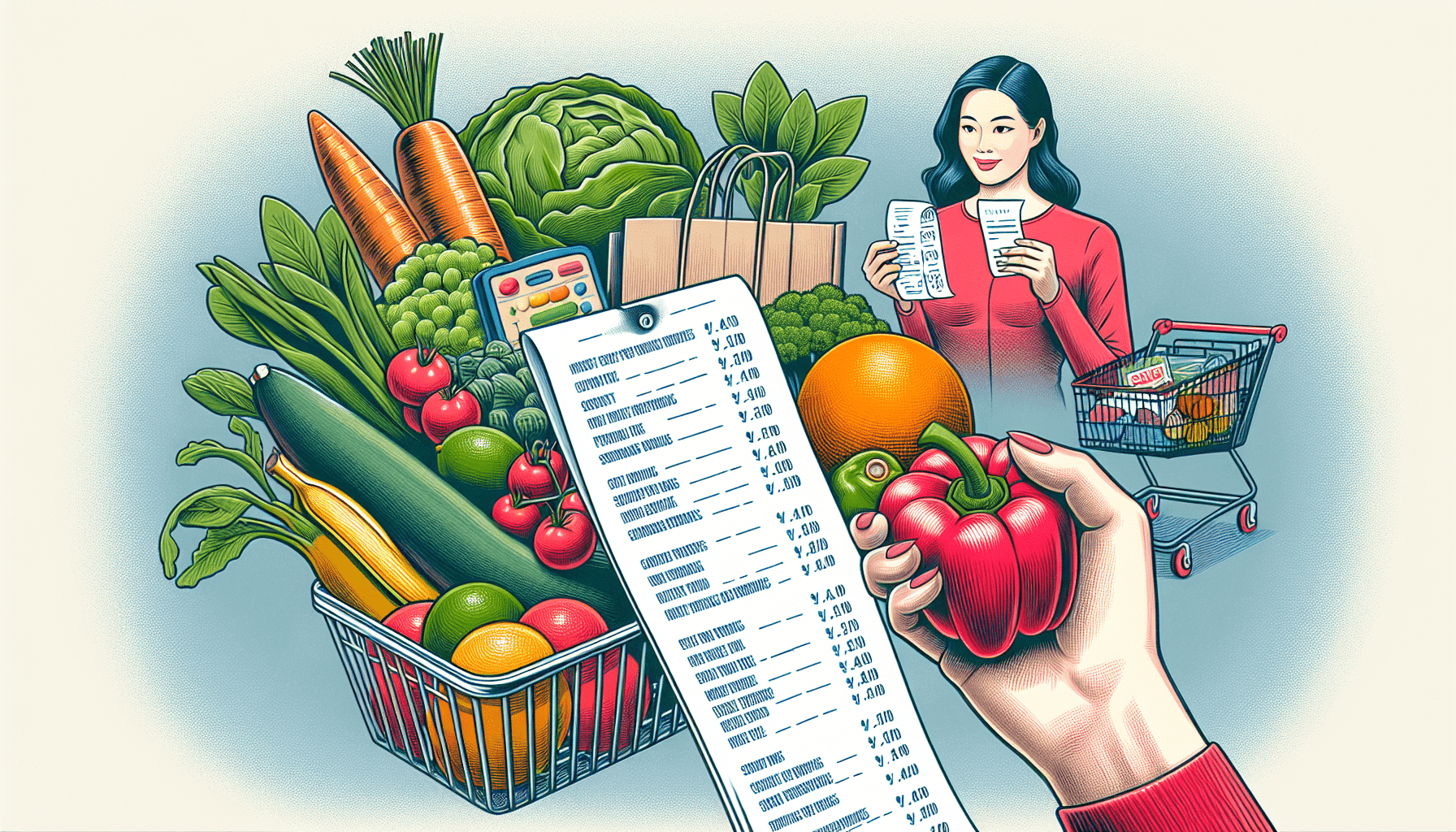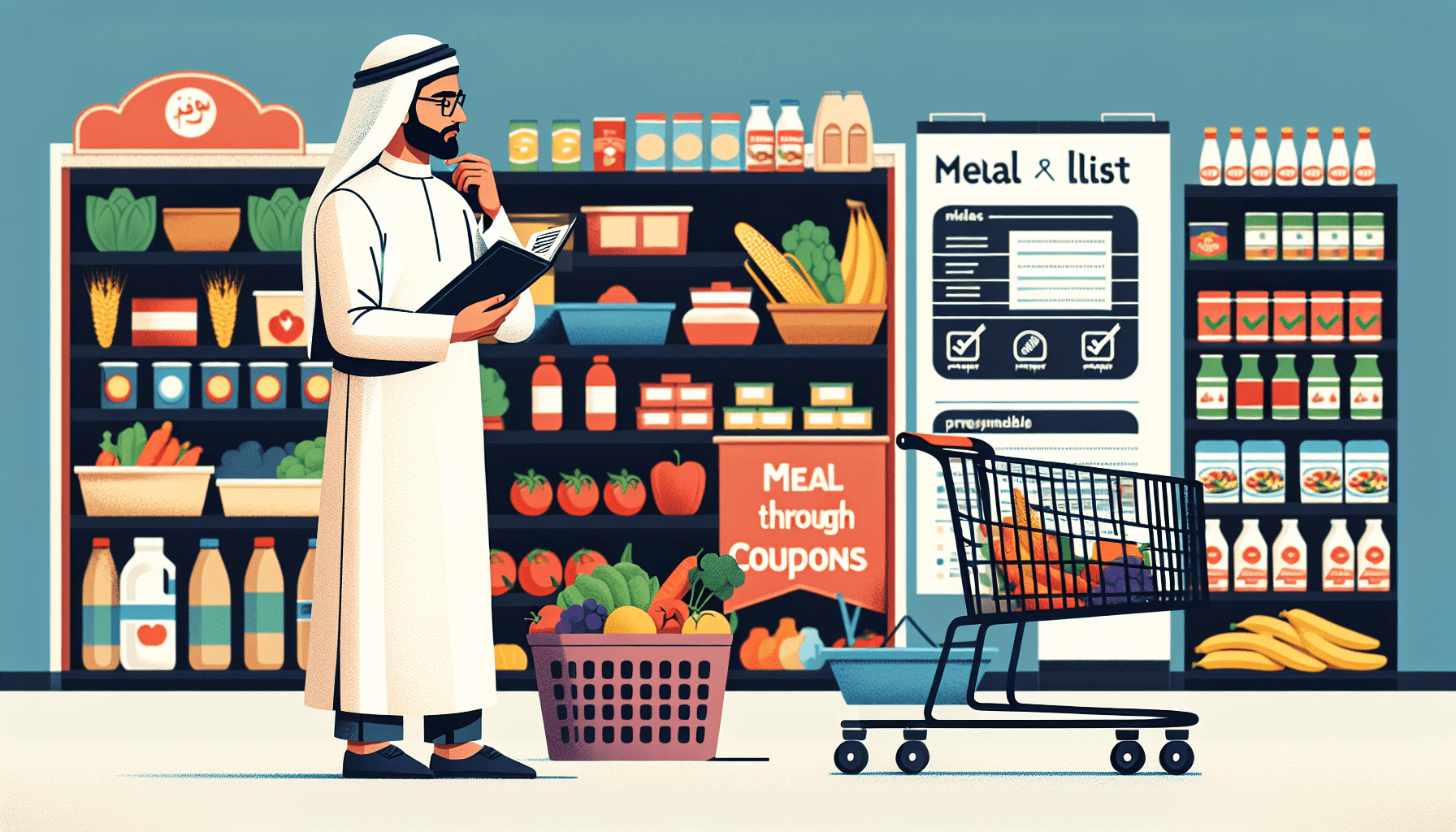You're about to discover a simple yet powerful strategy for planning your grocery shopping trips that will help you avoid those tempting impulse purchases and save money. We all know the feeling of walking into a supermarket with a shopping list in hand, only to leave with a cart full of unnecessary items that ruin our budget. But fear not, because by following a few key steps in your planning process, you can resist the urge to make impulse buys, stick to your budget, and still bring home everything you need. Get ready to make your shopping trips more efficient, organized, and wallet-friendly.
Make a Grocery List
The first step in planning your grocery shopping is to make a list of the items you need. By taking a few minutes to write down the things you need, you will have a clear plan for your trip to the store. Organizing your list by sections or categories can also save you time and make your shopping experience more efficient. For example, you can group your items by produce, dairy, meat, and pantry staples. This way, you can easily navigate the store and ensure that you don't miss anything on your list.
Plan Your Meals
To further streamline your grocery shopping, take some time to plan your meals for the week. By deciding on the meals you want to prepare, you can ensure that you buy the necessary ingredients and avoid purchasing unnecessary items. Before heading to the store, check your pantry and fridge for ingredients you already have. This will prevent you from buying duplicates and help you use up items that you may have forgotten about.
Set a Budget
Setting a budget is an essential step in controlling your grocery spending. Determine how much you can spend on groceries and allocate specific amounts for different categories of items. This will help you prioritize your purchases and prevent overspending. It's important to be realistic with your budget and consider factors such as the size of your household, dietary preferences, and any upcoming special occasions that may require additional groceries.
Research and Compare Prices
To get the most bang for your buck, it's a good idea to research and compare prices before heading to the store. Take advantage of weekly flyers and online deals to find out which stores are offering the best prices on the items you need. Additionally, consider comparing prices at different grocery stores in your area. While this may require some extra effort, the savings you can achieve by shopping at the most affordable stores can add up significantly over time.
Use Coupons and Loyalty Programs
Using coupons and taking advantage of loyalty programs can help you save even more money on your grocery shopping. Clip coupons from newspapers or online sources and bring them with you to the store. Look for deals on the items you need and apply the coupons at checkout to enjoy instant savings. Additionally, sign up for loyalty programs offered by grocery stores to earn discounts or rewards on your purchases. These programs often provide exclusive deals and special offers for members.
Shop When You're Not Hungry
One of the most common mistakes people make when grocery shopping is going to the store on an empty stomach. Being hungry can lead to impulsive buying and result in purchasing unnecessary items. To avoid this, make sure to eat a meal or have a snack before heading to the store. This will help you stay focused on your shopping list and resist the temptation to buy items that aren't part of your planned meals.
Shop Alone
Shopping alone can be a strategic way to avoid distractions and influences from others. When you shop with others, they may have their own preferences or ideas about what to buy, which can lead to additional unplanned purchases. By shopping alone, you can have full control over your shopping decisions and ensure that you stick to your list and budget.
Stick to the Perimeter of the Store
When navigating the grocery store, try to stick to the perimeter as much as possible. This is where the majority of fresh and healthier foods are located, such as produce, meat, and dairy products. By focusing on the outer aisles, you can make healthier food choices and avoid being tempted by processed and impulse-buy items found in the middle aisles. Of course, there may be some pantry staples and other necessities that are located in the middle aisles, but by limiting your time spent in those aisles, you can reduce the chances of impulse purchases.

Don't Fall for Eye-Level Marketing
As you stroll through the aisles, it's important to be aware of eye-level marketing tactics employed by brands. Many companies pay for prime spots at eye level, where it's easier for shoppers to notice their products. This doesn't necessarily mean that the items at eye level are the best deals or the highest quality. Take the time to look high and low on the shelves for better deals and compare prices and ingredients before making a decision. By being mindful of these marketing strategies, you can make more informed choices and potentially save money.
Avoid Impulse Buys at Checkout
The checkout area is often filled with tempting displays of snacks, candies, and other impulse buy items. These strategically placed items are designed to catch your attention and make you add them to your cart at the last minute. To avoid falling into this trap, stay away from these displays and remind yourself of your budget and the items on your list. Keep your focus on the task at hand and resist the urge to make spontaneous purchases. By sticking to your list, you can maintain your budget and avoid unnecessary expenses.
By following these tips, you can effectively plan your grocery shopping to avoid impulse purchases and save money. Remember to make a list, plan your meals, set a budget, research prices, use coupons and loyalty programs, shop when you're not hungry, shop alone, stick to the perimeter of the store, be mindful of eye-level marketing, and avoid impulse buys at checkout. By incorporating these strategies into your shopping routine, you'll be able to make more intentional purchases and take control of your grocery spending.





